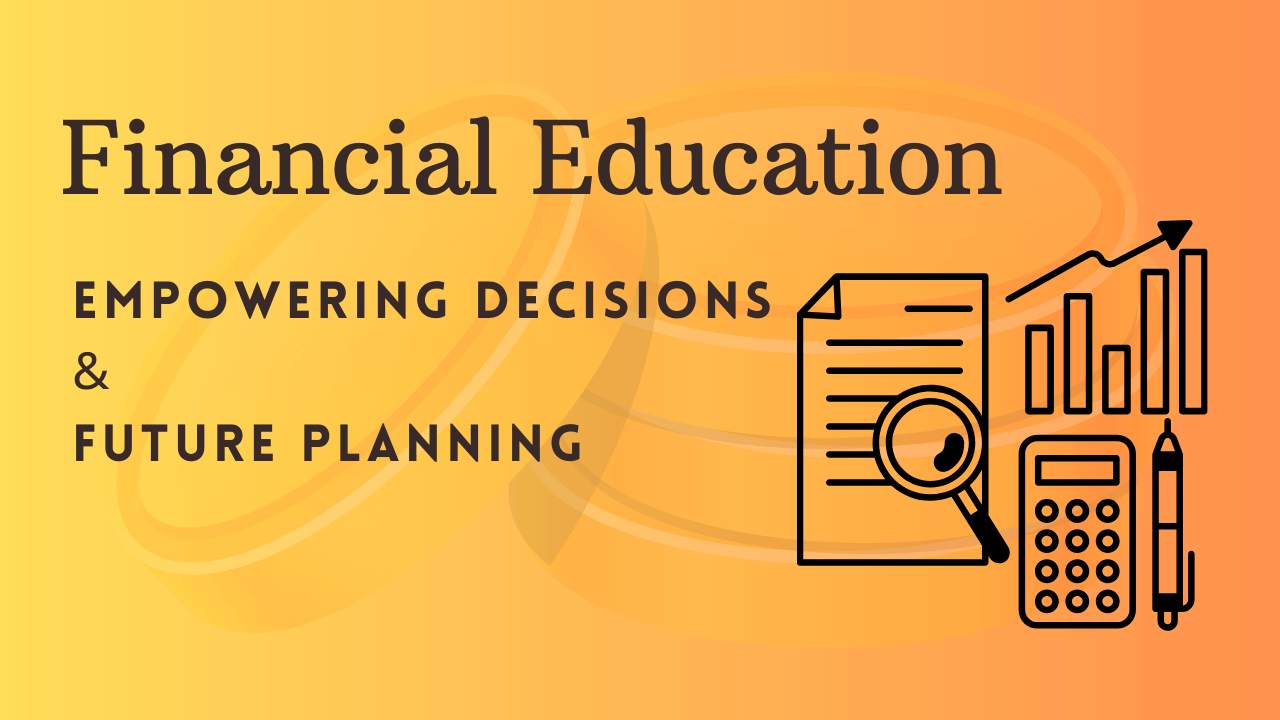In a world where financial stability often feels like an elusive dream for many, the significance of financial education cannot be overstated. It is the cornerstone upon which individuals build their understanding of money management, investments, and economic principles.
This blog post delves deep into the transformative power of financial education, exploring how it impacts individuals, families, and communities alike.
Understanding Financial Literacy and Education
Financial literacy encompasses the knowledge and skills required to make informed and effective financial decisions. It involves understanding concepts such as budgeting, saving, investing, debt management, and retirement planning. On the other hand, financial education refers to the systematic delivery of information and resources to enhance individuals' financial literacy.
Importance of Financial Literacy and Education
Financial literacy and education empower individuals to take control of their financial well-being. Here's how:
Empowering Decision-Making
With a solid understanding of financial concepts, individuals can make informed decisions about their money. Whether it's choosing the right investment option or deciding on a mortgage, financial literacy equips them with the necessary tools to navigate complex financial landscapes.
- Financial education equips individuals with the knowledge to make informed decisions about their money.
- It helps in choosing suitable investment options, understanding mortgage terms, and evaluating financial risks.
- By understanding financial concepts, individuals can confidently navigate complex financial landscapes.
Building Financial Resilience
Financial education prepares individuals to weather financial storms and unexpected expenses. By establishing emergency funds and understanding insurance options, they can mitigate risks and bounce back from setbacks more effectively.
- Financial education prepares individuals to handle unexpected expenses and financial setbacks.
- It encourages the establishment of emergency funds and understanding insurance options.
- With financial resilience, individuals can bounce back from financial challenges more effectively.
Breaking the Cycle of Debt
Many individuals find themselves trapped in cycles of debt due to lack of financial knowledge. Through education, they can learn strategies to manage and reduce debt, ultimately achieving greater financial freedom.
- Lack of financial knowledge often leads to individuals getting trapped in cycles of debt.
- Financial education teaches strategies for managing and reducing debt burdens.
- By learning how to control debt, individuals can achieve greater financial freedom.
Planning for the Future
Retirement may seem like a distant reality for some, but proper financial education encourages proactive planning for the future. From understanding retirement accounts to assessing long-term investment strategies, individuals can secure their financial futures with confidence.
- Financial education emphasizes proactive planning for long-term financial goals.
- It includes understanding retirement accounts, investment strategies, and estate planning.
- By planning for the future, individuals can secure their financial well-being and achieve their life goals.
The Transformative Impact of Financial Education
Financial education transcends individual benefits, creating ripple effects that extend to families, communities, and even nations. Consider the following:
Family Stability and Well-being
Financial literacy within families promotes stability and enhances overall well-being. When parents are equipped with financial knowledge, they can instill healthy money habits in their children, setting them up for success in the future. Moreover, discussions about finances within the family foster transparency and trust, strengthening familial bonds.
Economic Empowerment
Communities thrive when their members are financially empowered. Access to financial education programs can uplift underserved populations, providing them with the tools to break the cycle of poverty and build a brighter future. By promoting entrepreneurship and economic independence, financial literacy becomes a catalyst for sustainable development.
National Prosperity
On a macroeconomic level, the impact of financial education is profound. Countries with high levels of financial literacy tend to experience greater economic stability and growth. Individuals contribute to the economy more effectively, leading to increased productivity, innovation, and overall prosperity.
Real-World Example: The Impact of Financial Literacy Programs in Low-Income Communities
One compelling example of the transformative power of financial education is the implementation of literacy programs in low-income communities. Organizations such as the National Endowment for Financial Education (NEFE) have spearheaded initiatives to provide comprehensive financial education to underserved populations.
Through targeted workshops, online resources, and community outreach efforts, these programs have empowered individuals with the knowledge and skills needed to improve their financial well-being. As a result, participants report increased savings rates, reduced debt burdens, and greater confidence in managing their finances. Moreover, the positive effects extend beyond individual households, contributing to broader economic growth and community development.
Comparison of Financial Literacy Programs
| Program Name | Target Audience | Delivery Method | Impact |
|---|---|---|---|
| NEFE Financial | Low-Income | Workshops, Online | Increased savings, reduced debt, economic |
| Education | Communities | Resources | empowerment |
| Financial | High School | Curriculum Integration | Improved financial decision-making, |
| Literacy | Students | long-term financial planning | |
| Program | |||
| Corporate | Employees | Workshops, Seminars | Enhanced employee productivity, |
| Financial | reduced financial stress | ||
| Wellness |
Conclusion
In conclusion, the impact of financial education cannot be overstated. It is a powerful tool for empowerment, providing individuals with the knowledge and skills they need to navigate the complexities of modern finance. From improving individual financial well-being to fostering economic growth on a global scale, the benefits of financial literacy and education are far-reaching.
As we continue to prioritize financial education initiatives, let us envision a future where financial empowerment is accessible to all. What are your thoughts on the transformative power of financial education? Leave a comment below and join the conversation!
FAQ Section
Q: How can I improve my financial literacy?
A: Start by educating yourself on basic financial concepts such as budgeting, saving, and investing. There are numerous online resources, books, and workshops available to help you enhance your financial knowledge.
Q: Is financial education only for adults?
A: No, financial education is beneficial for individuals of all ages. Schools increasingly incorporate financial literacy into their curriculum, teaching students essential money management skills from a young age.
Q: What are the long-term benefits of financial education?
A: Financial education lays the foundation for long-term financial stability and prosperity. By making informed decisions and planning for the future, individuals can achieve their financial goals and enjoy greater peace of mind.




Write a comment